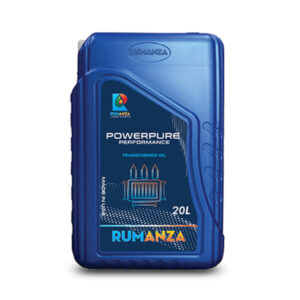What is Transformer Oil? Types, Properties, Uses, and Comparisons
What is Transformer Oil?
Transformer oil, also known as insulating oil, is a specially refined mineral or synthetic oil used in electrical transformers, circuit breakers, and other high-voltage equipment. It serves three primary functions:
Electrical Insulation – Prevents short circuits and arcing by insulating live components.
Cooling – Absorbs and dissipates heat generated by transformer windings.
Protection – Shields internal parts from oxidation, moisture, and contaminants.
Transformer oils must meet strict industry standards (such as IEC 60296 and ASTM D3487) to ensure reliability in high-voltage environments.
Types of Transformer Oil
Transformer oils are classified into three main categories based on their composition:
A. Mineral-Based Transformer Oil
Derived from crude petroleum, mineral oil is the most widely used transformer oil due to its excellent dielectric properties and cost-effectiveness.
Subtypes of Mineral Oil:
Paraffin-Based Oil
Advantages: High oxidation stability, longer lifespan.
Disadvantages: Forms sludge at low temperatures, less suitable for cold climates.
Naphthene-Based Oil
Advantages: Better low-temperature performance, less sludge formation.
Disadvantages: Slightly lower oxidation stability than paraffin-based oils.
B. Synthetic Transformer Oil
Synthetic oils are engineered for superior thermal and chemical stability. They are often used in high-risk environments.
Types of Synthetic Oils:
Silicone-Based Oil
Advantages: High flash point, non-flammable, long service life.
Disadvantages: Expensive, not biodegradable.
Ester-Based Oil (Natural & Synthetic Esters)
Advantages: Biodegradable, excellent fire resistance, high thermal stability.
Disadvantages: Higher cost than mineral oils.
C. Bio-Based Transformer Oil (Natural Esters)
Made from vegetable oils (e.g., soybean, rapeseed), bio-based oils are environmentally friendly and increasingly used in green energy projects.
Advantages:
Eco-friendly – Biodegradable and non-toxic.
High fire resistance – Safer for indoor and sensitive installations.
Excellent thermal properties – Extends transformer lifespan.
Disadvantages:
Higher cost than conventional mineral oils.
Limited availability in some regions.
Key Properties of Transformer Oil
For optimal performance, transformer oil must meet specific electrical, thermal, chemical, and physical properties.
A. Electrical Properties
Dielectric Strength – Measures insulation capability (should be >30 kV).
Resistivity – High resistivity prevents current leakage.
Dissipation Factor (Tan δ) – Indicates energy loss (lower values are better).
B. Thermal Properties
Flash Point – Minimum ignition temperature (should be >140°C).
Pour Point – Lowest temperature at which oil flows (important for cold climates).
Thermal Conductivity – Determines cooling efficiency.
C. Chemical Properties
Acidity (Neutralization Number) – Low acidity prevents corrosion.
Oxidation Stability – Resistance to degradation over time.
Interfacial Tension – Indicates oil degradation (higher values mean cleaner oil).
D. Physical Properties
Viscosity – Affects flow and cooling (lower viscosity improves efficiency).
Color & Clarity – Darkening indicates contamination or aging.
Uses of Transformer Oil
Transformer oil is essential in various electrical applications:
A. Power Transformers
Used in distribution and transmission transformers.
Ensures insulation and cooling under high loads.
B. Circuit Breakers & Switchgear
Prevents arcing in high-voltage electrical switches.
C. Capacitors & Voltage Regulators
Enhances insulation and heat dissipation.
D. Renewable Energy Systems
Used in wind turbines and solar power transformers.
E. Industrial Applications
Found in large motors, generators, and electric furnaces.
Maintenance & Testing of Transformer Oil
Regular testing ensures transformer oil remains effective and prolongs equipment life.
A. Common Tests
Dielectric Strength Test – Checks insulation breakdown voltage.
Dissolved Gas Analysis (DGA) – Detects internal faults like overheating.
Moisture Content Test – Ensures oil dryness (should be <35 ppm).
Acidity Test – Measures corrosive potential (should be <0.1 mg KOH/g).
B. Maintenance Tips
Filtration & Reconditioning – Removes sludge and impurities.
Replacement – Necessary if oil degrades beyond recovery.
Storage – Keep in sealed, moisture-free containers.
Comparison of Transformer Oils (Mineral vs. Synthetic vs. Bio-Based)
| Property | Mineral Oil | Synthetic Oil (Silicone/Ester) | Bio-Based Oil (Natural Ester) |
|---|---|---|---|
| Dielectric Strength | High (30-50 kV) | High (35-60 kV) | High (30-55 kV) |
| Flash Point | ~140-160°C | ~250-300°C (Silicone) / ~200-250°C (Ester) | ~300-330°C |
| Pour Point | -30°C to -40°C | -50°C to -60°C (Silicone) / -30°C to -40°C (Ester) | -20°C to -30°C |
| Oxidation Stability | Moderate | High (Silicone) / Very High (Ester) | High |
| Biodegradability | No | No (Silicone) / Yes (Ester) | Yes |
| Cost | Low | High | Moderate to High |
| Applications | General-purpose transformers | High-risk, high-temperature environments | Eco-sensitive areas, green energy |
Why Choose Rumanza Transformer Oil?
When selecting transformer oil, quality and reliability are crucial. Rumanza Transformer Oil offers:
✔ Superior Dielectric Strength – Ensures maximum insulation efficiency.
✔ Excellent Thermal Stability – Reduces breakdown risks.
✔ Low Viscosity – Enhances cooling performance.
✔ Oxidation Resistance – Extends oil lifespan.
✔ Compliance with Global Standards – Meets IEC 60296, ASTM D3487.
Trusted by industries worldwide, Rumanza Transformer Oil is the ideal choice for powering electrical systems safely and efficiently.
Final Thoughts
Transformer oil is indispensable in electrical infrastructure, providing insulation, cooling, and protection. Understanding its types, properties, and maintenance helps in selecting the best oil for your needs. Whether you use mineral, synthetic, or bio-based oils, regular testing ensures optimal performance.
For high-quality, reliable transformer oil, Rumanza Transformer Oil delivers unmatched efficiency and durability. Choose wisely to keep your transformers running smoothly for years to come.
Need expert advice on selecting the right transformer oil? Contact us today!
FAQs
Transformer oil serves two main purposes:
Electrical insulation – Prevents arcing and short circuits.
Cooling – Dissipates heat generated in transformers.
The three main types are:
Mineral oil (most common, cost-effective)
Synthetic oil (silicone or ester-based, high thermal stability)
Bio-based oil (natural esters, eco-friendly)
Routine testing should be done:
Annually for normal operating conditions.
Every 6 months for critical or high-load transformers.
After major faults (e.g., overheating, electrical surges).
Common indicators include:
Dark color (due to oxidation).
High acidity (causes corrosion).
Low dielectric strength (increased breakdown risk).
Sludge formation (impairs cooling).
Yes, if it meets industry standards (IEC/ASTM). Reconditioning involves:
Filtration (removes particles).
Dehydration (reduces moisture).
Degassing (eliminates dissolved gases).

Radiator Stop Leak UAE: Quick Fix for Vehicle Cooling System Leaks
Radiator Stop Leak UAE: Quick Fix for Vehicle Cooling System Leaks Discover More Introduction: The Unforgiving UAE Climate and Your Vehicle’s Lifeline The United Arab Emirates’ automotive landscape is defined by extremes. Ambient temperatures that regularly surpass 45°C (113°F), coupled with intense urban congestion and long, high-speed desert drives, create a perfect storm of thermal stress for every vehicle. In this environment, your engine cooling system is not merely a subsystem; it is the single most critical component preventing catastrophic engine failure.

What Type of Transmission Oil in UAE Does My Car Need? Your Complete Guide
What Type of Transmission Oil in UAE Does My Car Need? Your Complete Guide Discover More Navigating the vast, sun-baked highways of the United Arab Emirates—from the dynamic urban sprawls of Dubai and Abu Dhabi to the majestic desert dunes and the tranquil mountain passes of the Hajar range—places extraordinary mechanical and thermal stress on every component of your vehicle. While conscientious drivers often prioritize engine oil changes, the vital lifeblood safeguarding the transmission, the complex heart of your car’s

Guide to UAE Turbine Oil Selection Application & Management for Industrial Facilities
Guide to UAE Turbine Oil Selection, Application, and Management for Industrial Facilities Discover More In the hyper-competitive industrial landscape of the United Arab Emirates, where operational excellence directly translates to economic advantage, turbine lubrication represents a critical nexus of reliability engineering and strategic asset management. This comprehensive guide, developed with technical insights from Rumanza Lubricants, provides an unprecedented deep dive into the science, selection criteria, and life-cycle management of turbine oils specifically engineered for the extreme operating conditions of the

Synthetic vs. Mineral Hydraulic Oil in UAE : Which is Best for Your Operation?
Synthetic vs. Mineral Hydraulic Oil in UAE : Which is Best for Your Operation? Discover More Across the dynamic landscape of the United Arab Emirates—from the megaprojects of Dubai Marina to the intricate conveyor systems of Jebel Ali Port, from the massive hydraulic shovels in Al Dhafra quarries to the precision automated lines in Abu Dhabi’s industrial cities—the silent, powerful force of hydraulics is indispensable. These systems convert fluid power into monumental force and precise motion. At the core of

What is a Pour Point Depressant? | Benefits, Uses & How It Works Mechanism
What is a Pour Point Depressant? | Benefits, Uses & How It Works Mechanism Discover More In the intricate world of lubricant formulation, few additives play as critical yet understated a role in cold-weather operability as Pour Point Depressants (PPDs). These specialized chemical compounds are the linchpin that prevents machinery from seizing up when temperatures plummet. This in-depth guide goes beyond the basics, exploring the sophisticated chemistry, detailed mechanism, nuanced benefits, and practical considerations of PPDs. We will also examine the

Guide to Gasoline Engine Oils for UAE’s Extreme Climate: Engineering Peak Performance
Gasoline Engine Oils for UAE’s Extreme Climate: Engineering Peak Performance Discover More In the heart of the Arabian Peninsula, the United Arab Emirates stands as a testament to human ambition, with its engineering marvels and endless highways. Yet, this environment of soaring achievement is also one of the most punishing on Earth for machinery. For your vehicle—whether a nimble city sedan, a powerful family SUV, or a high-performance sports car—the UAE’s climate is a relentless adversary. The choice of engine

What are Polyol Ester Oils & Lubricants – Properties & Applications
What are Polyol Ester Oils & Lubricants – Properties & Applications Discover More In the intricate world of industrial machinery, automotive engines, and advanced refrigeration systems, the choice of lubricant is not merely a maintenance task—it’s a critical engineering decision. While conventional mineral oils have served us for over a century, the demands of modern technology require fluids that can perform under extreme pressure, temperature, and environmental stress. This is where synthetic lubricants, specifically Polyol Ester oils, come to the forefront.
